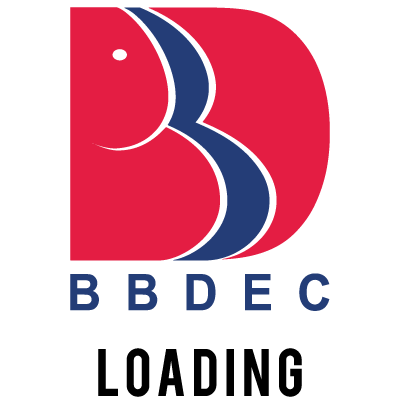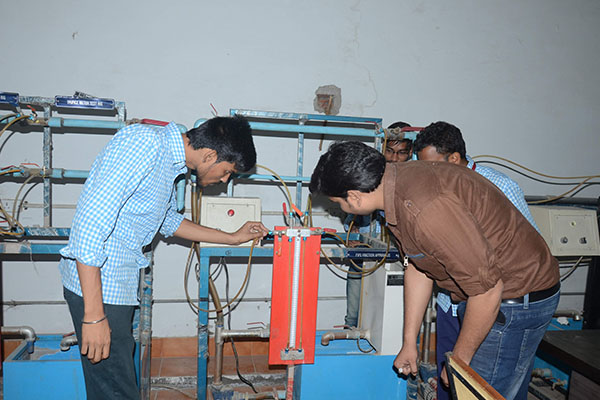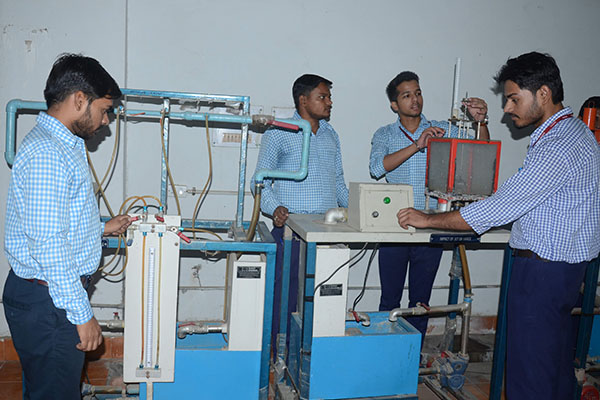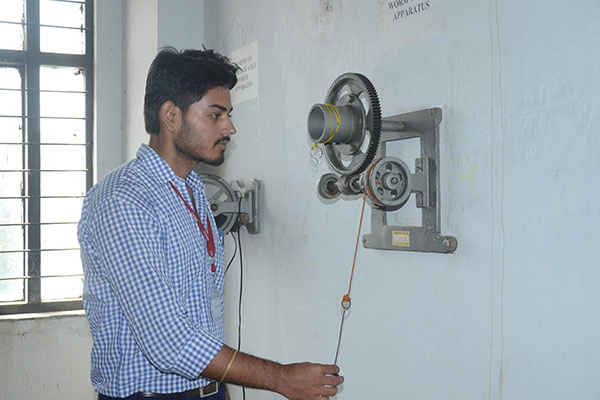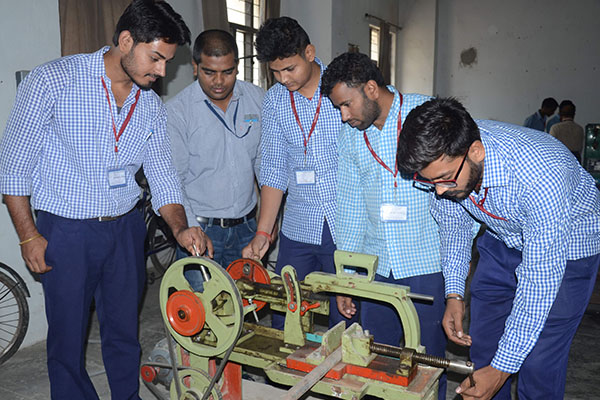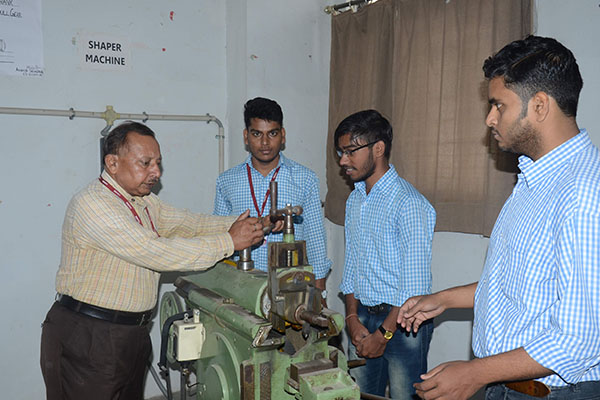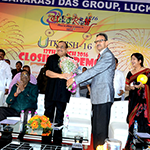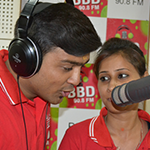Program Educational Objectives (PEOs)
The Program Educational Objectives (PEOs) of the Department represent major accomplishments that the graduates are expected to achieve after four years of graduation.
- PEO1 Apply computer based tools and techniques related to drafting, geometric modeling, manufacturing, automation and simulation within applied areas of engineering and technology and be equipped with industrial practices and research to engage successfully in industrial and production engineering, pursue higher studies, become entrepreneur.
- PEO2 Posses leadership qualities, capacity to work homogeneously in diverse teams and be an effective communicator.
- PEO3Be adaptive to new emerging technologies and be an innovator through constant acquisition of latest knowledge.
- PEO3Utilize operational features in variety of manufacturing and service industries to accommodate dynamically changing needs of industries.
Program Outcomes (POs)
- PO1 Engineering Knowledge: Apply the knowledge of mathematics, science, engineering fundamentals and an engineering specialization to the solution of complex engineering problems.
- PO2 Problem Analysis: Identify, formulate, review literature and analyze complex engineering problems reaching substantiated conclusions using first principles of mathematics, natural science and engineering sciences.
- PO3 Design / Development of Solutions: Design solutions for complex engineering problems and design system components or processes that meet the specified needs with appropriate consideration for the public health and safety and the cultural, societal and environmental considerations.
- PO4 Conduct Investigations of Complex problems: Use research based knowledge and research methods including design of experiments, analysis and interpretation of data, and synthesis of the information to provide valid conclusions.
- PO5 Modern Tool Usage: Create, Select, and apply appropriate techniques, resources and modern engineering and IT tools including prediction and modeling to complex engineering activities with an understanding of the limitations.
- PO6 The Engineer and Society: Apply reasoning informed by the contextual knowledge to assess societal, health, safety, legal and cultural issues and the consequent responsibilities relevant to the professional engineering practice.
- PO7 Environment and Sustainability: Understand the impact of the professional engineering solutions in societal and environmental context and demonstrate the knowledge of, and need for sustainable development.
- PO8 Ethics: Apply ethical principles and commit to professional ethics and responsibilities and norms of the engineering practice.
- PO9Individual and Team Work: Function effectively as an individual and as a member or leader in diverse teams and in multidisciplinary settings.
- PO10 Communication: Communicate effectively on complex engineering activities with the engineering community and with the society at large, such as, being able to comprehend and write effective reports and design documentation, make effective presentations, and give and receive clear instructions.
- PO11 Project Management and Finance: Demonstrate knowledge and understanding of the engineering and management principles and apply these to one’s own work, as a member and leader in a team, to manage projects and in multidisciplinary environments.
- PO12 Life Long Learning: Recognize the need for, and have the preparation and ability to engage in independent and lifelong learning in the broadcast of technological change.
Program Specific Outcomes (PSOs)
The students of undergraduate program in Civil Engineering will have following outcomes:
PSO 1
Graduating student shall be able to:
- Apply digital manufacturing and simulation tools using CAD, CAM, CAE, CNC machines, PDM, PLM in the design and manufacturing of Engineering goods and services for Consumer products , Automotive, Medical equipment, Aerospace and in allied domains.
- Develop the knowledge and skill relevant to Heating Ventilation and Air-Conditioning industries.
- Exhibit the ability to make a product related to Mechanical Engineering and allied engineering fields.
PSO 2
An ability to use the techniques, skills and modern engineering tools necessary for engineering practice
- a) Use of engineering equipments
- b) Able to analyze engineering problems using software tools.
PSO 3
A recognition of the need for, and an ability to engage in life-long learning
- a) Able to use resources to learn new materials not taught in class.
- b) Ability to list sources for continuing education opportunities.
- c) Recognizes the need to accept personal responsibility for learning and of the importance of lifelong learning.
